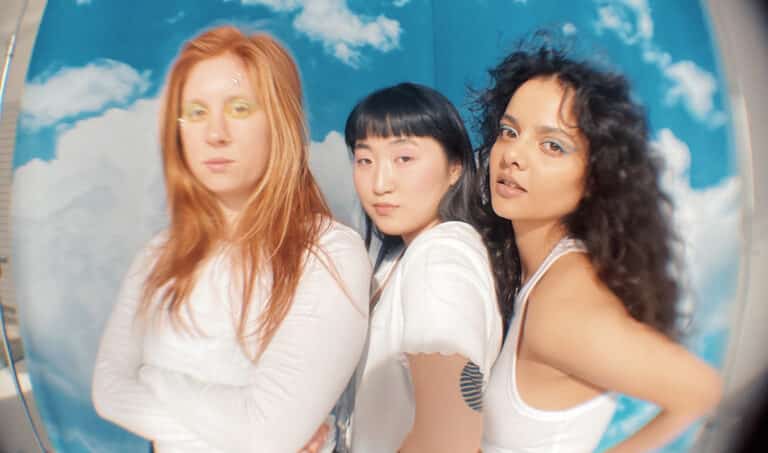It’s about time we address the ‘second puberty’ nobody warns us about
Most people are aware of puberty—their first rollercoaster ride with puberty anyway. These are the times where our bodies change, our outlook on the world develops and our priorities differ. The roaring hormones are a story in themselves. Yet, I find that we are rarely preempted or warned about the dreaded ‘second puberty’ we all go through eventually.
Among millennials, I have observed that the second puberty we’re talking about here tends to happen between the ages of 24 and 32. If you’re lucky, some kind of breakdown (or rather, breakthrough) happens, which in turn leads you to introspect and wonder if you’re even on the right path in life. This is before you make decisions that feel more concrete—dare I say, more adult—and the ‘regular’ you freaks out and catapults your soul into the unknown. It’s the necessary shedding of old skin. It’s like the shifting plates under you are sliding rather violently and you need to work out how to move forward, in a way that actually suits you.
During this transition, who you are changes drastically, along with all of your wants and desires. Maybe what you’re looking for in a romantic partner expands (or even the desirability of having one in your life), perhaps your sexuality becomes more fluid, your friendship circles switches or you quit a job that has lost its purpose. We are the great resignation generation after all. This second puberty that we’re talking about is the breaking of who we are into the cliché making of who we are.
For 29-year-old Imah, the transition was standing up for her beliefs at work and quitting her job. “The change for me was huge. It sounds silly but I felt like I was being risky—having a relatively secure job and being financially independent to being the opposite. But it meant that I was finally doing things for [myself] and finally being a bit more selfish, and in a good way.” Hailing from a liberal Bangladeshi family, Imah was imbibed with the concept of an ‘ideal’ road to happiness: get a corporate job and earn money. “It was quite hard trying to explain to my family that that’s not what I want from life—just being more assertive was a big change for me,” she added.
For Samar, on the other hand, the pandemic has opened up venues for introspection. “I thought a lot about who I was, what I valued, the way I wanted my life to be and made some stark comparisons between that and where I was at the time.” According to the 26-year-old, this has led to a complete shift in self-perception and revaluation of the desired direction of life. “It can be quite daunting to have these thoughts and put them into action when you’re in your 20s, and supposedly meant to have figured those things out already but what I realised was that the answers to those questions when I was a teenager no longer served me and my purpose. Hence, the rebirth.”
Perhaps this is why there is a lack of conversation around the so-called second puberty, because historically—especially women—have had their lives mapped and figured out by their twenties. Our mothers and those before them did not witness this period of their lives, in the ways in which we do now, because often, they swiftly entered motherhood and put aside all hopes of self-exploration and introspection. For them, these aspects were no longer necessary at their stage of life.
So if this second puberty happens to the majority of us currently, why don’t we know more about it and welcome the ever-constant changes? Michelle Obama did write an entire bestselling book in her fifties on Becoming. So, there are definitely examples of it to be seen in the public sphere.
On one hand, perhaps this is because there is no one-size-fits-all map on how to get to the other side. Such ‘journeys’ are as unique as our fingerprints and therefore, it’s not often a path that you are led through. It’s easier to explain the basics of our menstrual cycle than trying to coach an individual through personal changes.
On the other hand, maybe it’s because not all of us will undergo these spiritual, emotional and largely internal changes. The rite to passage through this second puberty involves the impeachment of self-control and welcoming a colder unknown. In today’s era of convenience, a rebirth feels like a lot of effort.
Though I’m not on the other side just yet, I find myself wading through the changes and so, this second puberty feels quite like a natural reckoning—a force, if you may. It feels like a blessing to be able to live many lives in one, with a chance to make conscious decisions instead of what’s expected of your tumultuous twenties. So, is it worth it?
For Imah, quitting her job into the unknown and forcing herself into the second puberty meant prioritising what mattered to her. She’s now actively engaged in charity work, global affairs and politics while working in policy and a sector she wishes to push herself into. Over at Samar’s, “The outcome has been full of growth, living authentically and feeling more at peace with my decisions having made them in isolation without loud distractions which meant they were true to me.”





